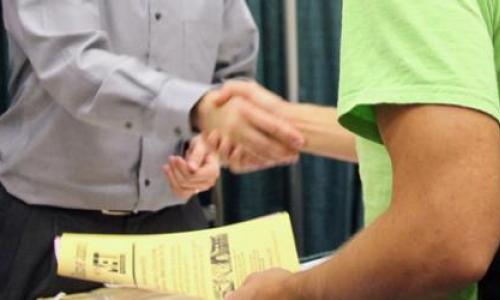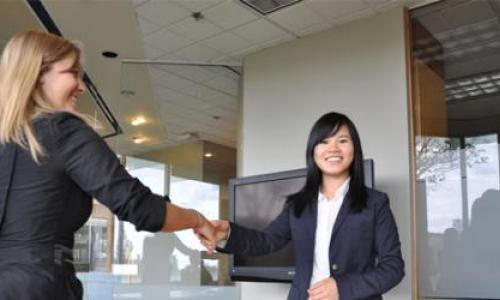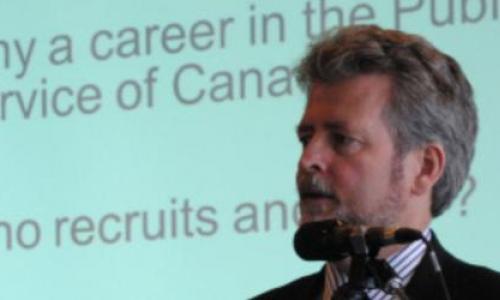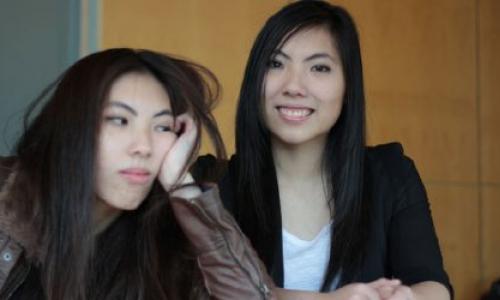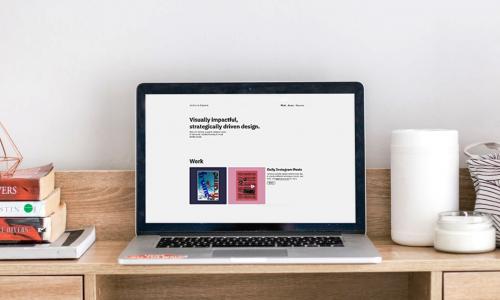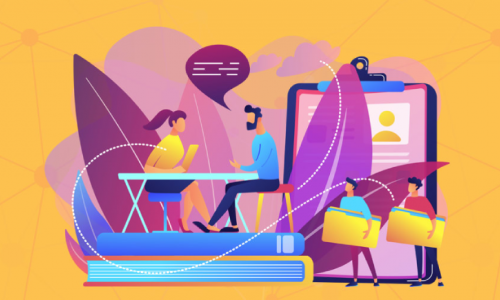
As students, we have lots of access to advice on interviews from our peers and advisors. However, have any of your employers told you how they felt about your interview? Over the last year, I have worked as a Global Community Mentorship Program Coordinator, recruiting and interviewing people. Being the person sitting on the other side of the table has left me feeling very differently about interviews. Here are some tips that I can give you from my experience:
Interview Tip #1: Show Professionalism and Respect in Every Email
You might think your interview starts when you step into the office, however, in your interviewer’s eyes, it starts as soon as they send you the invitation email. Imagine there are two applicants: one replied to the interviewer’s email without addressing their name or using any greeting words, and the other one replied with respect and professionalism. If you were the interviewer, which applicant would leave you with a better first impression? I’m guessing you might already know the answer!
Interview Tip #2: Relax and Be Confident
Your interviewer is a person, same as you. I still remember my first time interviewing others - I felt stressed, and I was afraid I would not come off as professional. That is to say, you are not the only one who may feel nervous! The interview is a great opportunity to set yourself up for that potential offer, so think about ways to balance your professional look and feel with some easy-going conversation, too. Then everyone will be able to relax, which can lead to more luck coming your way.
Interview Tip #3: Use Positive Non-verbal Communication During your Interview
Since 67% of hiring managers say that failure to make eye contact is a common nonverbal mistake, when you first meet your interviewers in person, make a strong first impression by making eye contact, showing your smile, and having a confident handshake. To me, a handshake is a positive signal that shows respect and friendliness, and when the interviewee makes eye contact while answering questions, I am left with a great impression of the person’s confidence.
Interview Tip #4: Put Yourself in the Interviewer’s Shoes
Letting your interviewers know what areas you are strongest in is not wrong, but it might be irrelevant to what the interviewer is looking for. I did an interview with a very strong academic candidate, for example. During the interview, the person focused on his many academic achievements, which was really great, but neglected to address the aspects of the position that required someone who is more involved in student life. Hearing more about the person’s extra-curricular experiences, enthusiasm, and how he might have helped others would have improved his chances of receiving an offer. Showing your interviewers that you are excellent in general is good, but showing your interviewers the characteristics they are looking for is more important. By highlighting your most relevant skills and experiences, you stand a better chance of being the successful candidate. More tips: a financial company might not be interested in your Food Safe certificate, like a restaurant might not want to hear about your mastery of using Excel spreadsheets. Keep it relevant and you’ll do just fine.
Interview Tip #5: Think Before You Talk
An employer might give you some questions that you have never heard before. It is ok to paraphrase the question to the interviewer to ensure you understand it correctly, ask for more clarification, or tell the interviewer that you need a few seconds to think about it. Remember, once you say your answer out loud, they’ve heard it. By taking time and offering thoughtful answers, you’ll use every second of your interview to make the best impact.
Interview Tip #6: Follow Up
A great strategy to show your gratitude and your excitement is sending a follow up email. This is also an opportunity to strengthen their impression of you, or at least an opportunity for you to show respect to your interviewers. Nowadays, only 10% of all applicants send a thank you note to their interviewers, and interviewers see it as a sign of a detailed candidate who understands courtesy.
These are my insights about how to have a successful interview from my experience on the other side of the table. Good luck with your job search!
Beyond the Blog
-
Need help with your resume, cover letter, or interview? Book a one-on-one consultation with a Career Peer like Scarlett.
-
GCMP is now accepting mentees for 2018-2019! Click here to find out how to apply.









